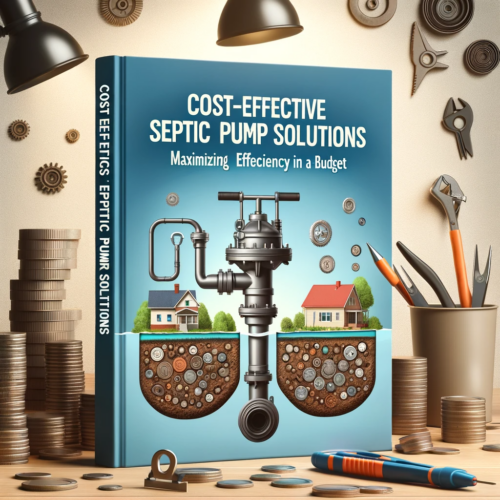Cost-Effective Septic Pump Solutions: Maximizing Efficiency on a Budget
Managing a home septic system efficiently while on a budget is a challenge many homeowners face. Fortunately, there are several cost-effective solutions for maintaining or upgrading your septic pump without breaking the bank. This article explores practical ways to enhance septic pump efficiency and save money in the long run.

Understanding Septic Pump Efficiency
Efficiency in a septic pump is measured by its ability to handle waste effectively while using minimal energy. An efficient pump not only saves money on energy bills but also reduces the likelihood of costly repairs and maintenance.
Cost-Effective Solutions for Septic Pumps
- Regular Maintenance: Regularly inspecting and maintaining your septic pump can prevent major malfunctions. Simple tasks like cleaning filters and checking for leaks can extend the life of your pump.
- Energy-Efficient Models: Investing in an energy-efficient septic pump can lead to significant savings. Look for models with a high efficiency rating that match your septic system’s requirements.
- Proper Sizing: Ensure your septic pump is the correct size for your tank. An oversized or undersized pump can lead to inefficiency and higher costs.
- Use of Timers: Installing a timer can control the pump’s operation during off-peak hours, reducing electricity costs.
- Upgrade to Dual-Mode Pumps: Dual-mode pumps can switch between low and high power modes depending on the load, offering energy savings without compromising performance.
DIY Maintenance Tips
- Regularly Check Alarms: Make sure the septic pump alarm system is functioning correctly to catch issues early.
- Clean Pump Filters: Regular cleaning of the pump filters can improve efficiency and prevent clogs.
- Monitor Water Usage: Reducing overall water usage can lessen the load on the septic pump, prolonging its lifespan.
Balancing Cost and Quality
While budget is a key consideration, it’s important not to compromise on quality. Opt for reputable brands and consider long-term savings over initial cost. Sometimes, spending a bit more upfront can result in lower long-term costs due to better durability and efficiency.
Eco-Friendly and Budget-Friendly Practices
- Rainwater Harvesting: Utilize rainwater for non-potable purposes to reduce the water load on the septic system.
- Landscaping: Proper landscaping can prevent excess water from entering the septic system, thereby reducing the pump’s workload.
When to Seek Professional Help
For installation, major repairs, or when in doubt, it’s advisable to consult with a professional. Their expertise can save you from costly mistakes and ensure your system complies with local regulations.
Conclusion
Efficiently managing your septic pump doesn’t have to be expensive. By adopting cost-effective practices, investing in the right technology, and performing regular maintenance, you can achieve efficiency and reliability while sticking to your budget. Remember, the key is to balance cost-saving measures with smart investments in quality and sustainability.

